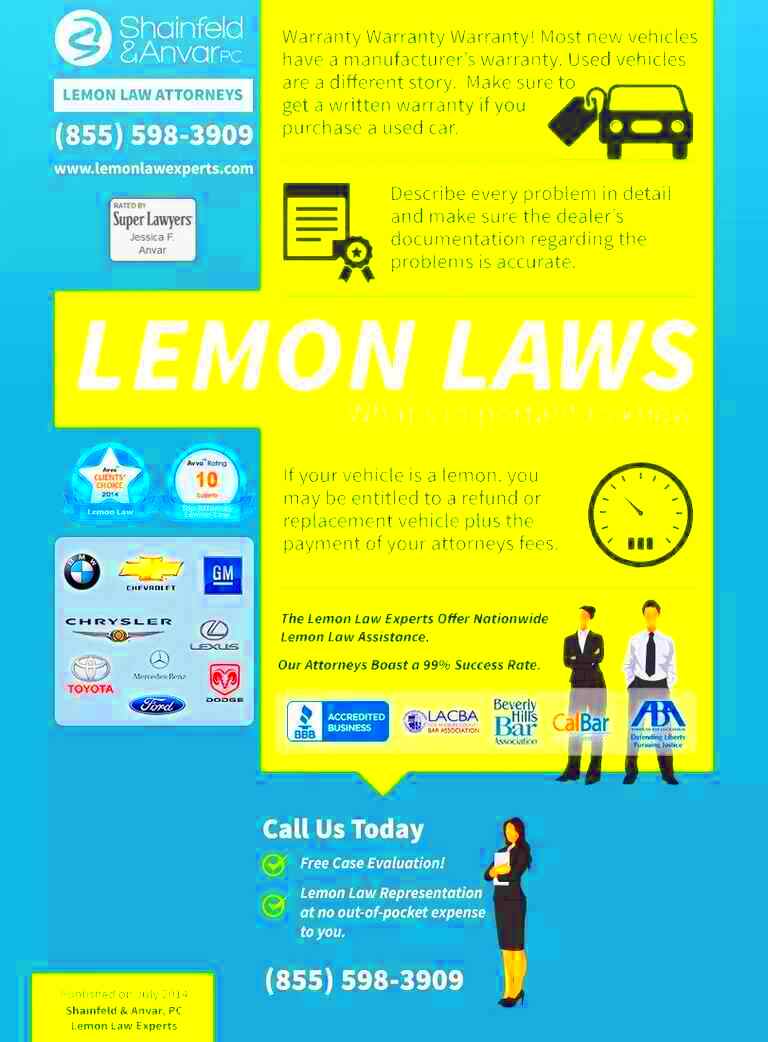Key Facts About Lemon Law in Montana
Lemon Law is designed to protect consumers who purchase defective vehicles. In Montana, the Lemon Law aims to provide remedies for buyers of new or used vehicles that have serious defects. The law ensures that if a vehicle fails to meet quality standards, consumers have legal options to seek a refund or replacement. This law applies to various vehicles, including cars, trucks, and motorcycles. Understanding Lemon Law can help you make informed decisions when purchasing a vehicle and ensure your rights are protected if you encounter issues.
Eligibility Criteria for Lemon Law Claims

To qualify for a Lemon Law claim in Montana, certain criteria must be met. Here are the key factors to consider:
- Vehicle Type: The Lemon Law applies to new and certain used vehicles. It typically does not cover motorcycles, trucks over 10,000 pounds, or vehicles purchased for commercial use.
- Defects: The vehicle must have a substantial defect that affects its use, value, or safety. This includes issues like engine failure, transmission problems, or persistent electrical faults.
- Repair Attempts: The manufacturer or dealer must have had a reasonable opportunity to fix the defect, usually requiring at least four repair attempts or the vehicle being out of service for 30 days.
- Time Frame: Claims must be made within a specific time frame, typically during the warranty period or within a certain number of miles driven.
Process for Filing a Lemon Law Claim
Filing a Lemon Law claim in Montana involves several steps. Here’s a simple guide to navigate the process:
- Document Everything: Keep detailed records of all repairs, including dates, descriptions of issues, and communications with the dealer or manufacturer.
- Contact the Dealer: Notify the dealer of the problem and give them a chance to fix it. Provide them with the documentation you’ve collected.
- Notify the Manufacturer: If the issue isn’t resolved, send a formal letter to the manufacturer, detailing the defect and your repair attempts.
- File a Complaint: If the issue persists, you can file a complaint with the Montana Department of Justice, which may help mediate the dispute.
- Consult a Lawyer: If you’re still not satisfied, consider consulting a lawyer who specializes in Lemon Law. They can guide you through the legal process and help you understand your rights.
Remember, the key to a successful Lemon Law claim is documentation and communication. The more evidence you have, the stronger your case will be.
Common Defects Covered Under Lemon Law
When you think of Lemon Law, you might wonder what kinds of defects it actually covers. In Montana, Lemon Law is designed to address serious defects that significantly affect your vehicle’s performance, safety, or value. Here are some common issues that may qualify:
- Engine Problems: Any major engine malfunctions that impair the vehicle’s ability to run smoothly or efficiently.
- Transmission Issues: Problems with shifting gears, slipping, or complete failure can be significant defects.
- Electrical Failures: Malfunctions with the vehicle’s electrical system, such as faulty wiring, battery issues, or problems with lights and indicators.
- Brake Failures: Defective brakes that fail to operate properly can be life-threatening and are considered serious defects.
- Steering and Suspension Problems: Issues affecting the handling of the vehicle, making it unsafe to drive.
If your vehicle exhibits any of these defects, it’s crucial to document them and report them to the dealer or manufacturer. Remember, not all issues qualify under Lemon Law; they must significantly affect the vehicle’s operation and safety.
Time Limits for Filing a Claim
When it comes to Lemon Law claims, timing is everything. Montana has specific time limits that you need to be aware of to ensure your rights are protected. Here’s what you should know:
- Warranty Period: Most claims must be filed during the warranty period of the vehicle, which typically lasts for one year or 12,000 miles, whichever comes first.
- Repair Attempts: If you’ve made multiple repair attempts (usually four or more), it’s essential to act quickly after the last attempt.
- Claim Filing Window: Generally, you have up to six months after the expiration of the warranty to file a Lemon Law claim.
Make sure to track these time limits carefully. Missing a deadline can jeopardize your claim, so it’s always a good idea to seek advice early in the process. Being proactive can save you a lot of stress down the line.
Potential Remedies Under Lemon Law
If you’ve successfully filed a Lemon Law claim, you may be entitled to various remedies. Montana’s Lemon Law provides a few options to ensure you are compensated for your troubles:
- Refund: You may receive a full refund of the purchase price, including taxes, registration fees, and other costs associated with the purchase.
- Replacement Vehicle: If the defects cannot be repaired, you might be eligible for a replacement vehicle of similar value and specifications.
- Reimbursement for Repairs: If you’ve incurred out-of-pocket expenses for repairs, you may be reimbursed for those costs, provided they are documented.
- Legal Fees: If you hire an attorney, you might also be able to recover your legal fees if you win your case.
Understanding these remedies can empower you as a consumer. Lemon Law is there to protect your rights, ensuring you’re not stuck with a defective vehicle. Always consult with a legal professional to explore your options fully.
Role of Legal Representation in Lemon Law Cases
When dealing with Lemon Law cases, having legal representation can be a game-changer. Navigating the complexities of the law can be overwhelming, especially when you’re already dealing with a defective vehicle. A knowledgeable attorney can help ensure your rights are protected. Here’s why legal representation is crucial:
- Expertise: Lemon Law attorneys understand the intricacies of the law and know what it takes to build a strong case.
- Negotiation Skills: They can effectively negotiate with manufacturers and dealers, often achieving better outcomes than individuals could on their own.
- Documentation Assistance: An attorney can help you gather and organize the necessary documentation, making sure you have all your records in order.
- Court Representation: If your case goes to court, having a lawyer by your side can make a significant difference. They can represent you and argue your case more effectively.
While hiring legal representation does come with costs, the potential benefits often outweigh these expenses. Remember, the goal is to ensure you receive the compensation or resolution you deserve for your Lemon Law claim.
Frequently Asked Questions About Lemon Law
Understanding Lemon Law can lead to many questions. Here are some common queries that people often have:
- What is the Lemon Law? The Lemon Law protects consumers who purchase defective vehicles, allowing them to seek refunds or replacements.
- How do I know if my vehicle is a lemon? If your vehicle has significant defects that affect its safety or use, and it has had multiple repair attempts without resolution, it may qualify as a lemon.
- Can I file a claim for a used vehicle? Yes, Lemon Law may apply to certain used vehicles, especially if they come with a warranty.
- What if my vehicle is out of warranty? You may still have options, but the process can be more complex, so it’s advisable to consult a lawyer.
- How long does the Lemon Law process take? The duration can vary, depending on the specifics of the case and whether it goes to court. It’s best to be prepared for a potentially lengthy process.
If you have more questions, it’s always a good idea to consult with a Lemon Law attorney who can provide personalized guidance.
Conclusion and Final Thoughts on Lemon Law in Montana
Understanding Lemon Law in Montana is essential for consumers to protect their rights. It can be frustrating to deal with a defective vehicle, but knowing your legal options can provide peace of mind. Remember, Lemon Law is designed to ensure you don’t have to bear the burden of a lemon. If you believe you have a case, keep detailed records, act promptly, and consider seeking legal assistance.
In conclusion, Lemon Law serves as a vital protection for consumers, allowing them to pursue remedies for defective vehicles. The key takeaway is to stay informed, act quickly, and advocate for your rights. Whether you seek a refund, a replacement, or simply want to understand your options, being knowledgeable about Lemon Law can empower you as a consumer in Montana.


